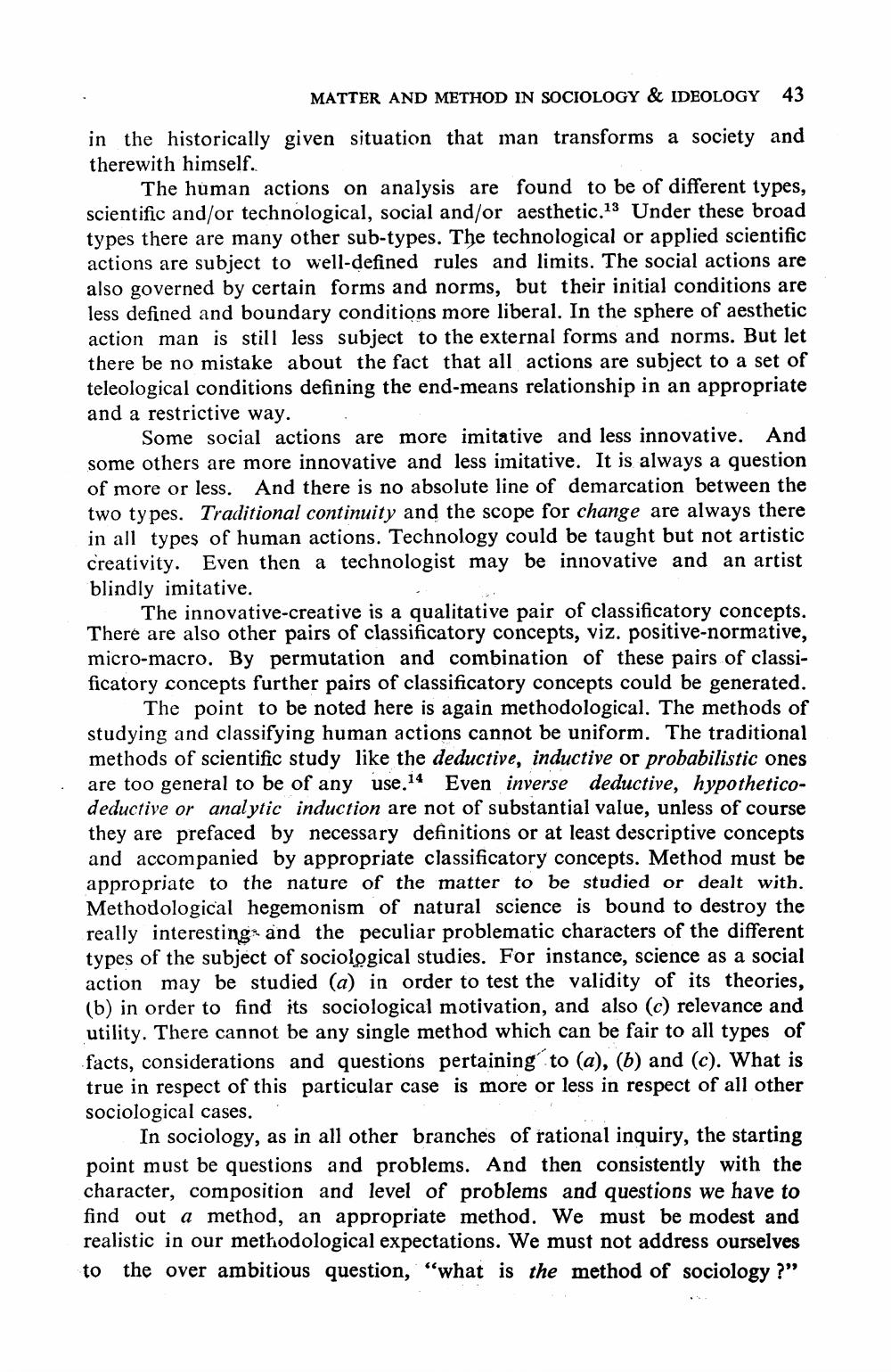Book Title: Matter And Method In Sociology And Ideology Author(s): D P Chattopadhyaya Publisher: D P Chattopadhyaya View full book textPage 5
________________ MATTER AND METHOD IN SOCIOLOGY & IDEOLOGY 43 in the historically given situation that man transforms a society and therewith himself. The human actions on analysis are found to be of different types, scientific and/or technological, social and/or aesthetic.13 Under these broad types there are many other sub-types. The technological or applied scientific actions are subject to well-defined rules and limits. The social actions are also governed by certain forms and norms, but their initial conditions are less defined and boundary conditions more liberal. In the sphere of aesthetic action man is still less subject to the external forms and norms. But let there be no mistake about the fact that all actions are subject to a set of teleological conditions defining the end-means relationship in an appropriate and a restrictive way. Some social actions are more imitative and less innovative. And some others are more innovative and less imitative. It is always a question of more or less. And there is no absolute line of demarcation between the two types. Traditional continuity and the scope for change are always there in all types of human actions. Technology could be taught but not artistic creativity. Even then a technologist may be innovative and an artist blindly imitative. The innovative-creative is a qualitative pair of classificatory concepts. There are also other pairs of classificatory concepts, viz. positive-normative, micro-macro. By permutation and combination of these pairs of classificatory concepts further pairs of classificatory concepts could be generated. The point to be noted here is again methodological. The methods of studying and classifying human actions cannot be uniform. The traditional methods of scientific study like the deductive, inductive or probabilistic ones are too general to be of any use.14 Even inverse deductive, hypotheticodeductive or analytic induction are not of substantial value, unless of course they are prefaced by necessary definitions or at least descriptive concepts and accompanied by appropriate classificatory concepts. Method must be appropriate to the nature of the matter to be studied or dealt with. Methodological hegemonism of natural science is bound to destroy the really interesting and the peculiar problematic characters of the different types of the subject of sociological studies. For instance, science as a social action may be studied (a) in order to test the validity of its theories, (b) in order to find its sociological motivation, and also (c) relevance and utility. There cannot be any single method which can be fair to all types of facts, considerations and questions pertaining to (a), (b) and (c). What is true in respect of this particular case is more or less in respect of all other sociological cases. In sociology, as in all other branches of rational inquiry, the starting point must be questions and problems. And then consistently with the character, composition and level of problems and questions we have to find out a method, an appropriate method. We must be modest and realistic in our methodological expectations. We must not address ourselves to the over ambitious question, "what is the method of sociology?"Page Navigation
1 ... 3 4 5 6 7 8 9 10 11 12 13 14 15 16 17
